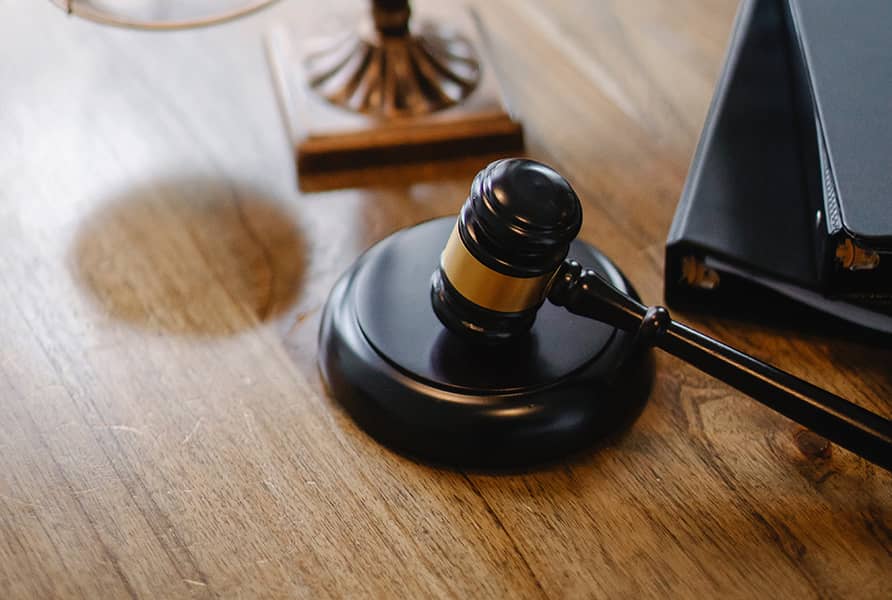Michael S. Simone, Esq.
Managing Attorney

Moving into a new home should be an exciting time. But for many, their dream home quickly turns into a nightmare when they find themselves at odds with their homeowner’s association (HOA).
You know, the group that’s supposed to maintain property values and harmony within the community.
But what happens when that group starts targeting you? Whether it’s excessive fines over minor rule violations, verbal attacks at HOA meetings, or outright discrimination, harassment by an HOA can make your life miserable.
So when does a bothersome HOA cross the line into harassment? And what can you actually do from a legal standpoint if you find yourself faced with an HOA intent on making your life difficult?
HOA horror stories seem to be increasingly common these days. But not every unpleasant interaction with your HOA necessarily means you have grounds for a lawsuit.
Based on our experience handling hundreds of HOA disputes in New Jersey, here are some of the most common scenarios that could potentially give homeowners the right to take legal action:
If your HOA ignores its own bylaws, fails to adhere to your community’s CC&Rs, or doesn’t follow proper procedures for enacting new hoa rules or policies, it may constitute a breach of contract. For example, if your HOA suddenly starts aggressively fining residents without allowing time to correct rule violations per its published policies, you may have a case.
It’s illegal for HOAs to target residents based on race, religion, disability, familial status, or other protected characteristics. For instance, if an HOA enforces rules more strictly against homeowners of a certain ethnicity or sexual orientation, it could qualify as discrimination.
Suppose an HOA board or property manager specifically singles out a homeowner for excessive monitoring, penalties, or other unfavorable treatment. In that case, it may cross the line into harassment, especially if the HOA’s actions seem intended to drive the resident out of the community.
HOAs have a duty to properly maintain common areas like pools, playgrounds, and landscaping. If poor upkeep results in a dangerous condition that causes a homeowner injury, the HOA may be liable for negligence.
Before jumping straight to suing your HOA, there are some practical steps you should take to build your case and show you’ve tried resolving issues directly:
File a Written Complaint and request ADR should occur. Alternative Dispute Resolution (ADR) should first be utilized to formally try to resolve the issue in dispute internally before formally litigating a matter.
Document all of your issues with the HOA in writing. Provide specific examples, dates, and names whenever possible. This creates a paper trail showing you followed proper procedure.
Sit down with an experienced HOA lawyer before taking any formal legal action. They can provide expert guidance on the laws in your state, advise your rights in the situation, and help negotiate a resolution if appropriate.
You’re likely not the only homeowner unhappy with your HOA’s conduct. Connecting with other residents can reveal key patterns and turn up additional witnesses to support your claims.
Filing a lawsuit against your HOA should never be taken lightly. Here’s what you can expect if you do wind up taking your HOA to court:
The first step is hiring an attorney to officially serve your HOA with a summons and complaint detailing your allegations against them. This formally commences the litigation process.
During discovery, your legal team and the HOA’s lawyers exchange relevant information through documents, interrogatories, depositions, and more. This evidence-gathering helps prove or disprove claims.
Many HOA lawsuits end in a settlement agreement before reaching a trial. This avoids further legal expenses and provides a resolution for both parties. But if no settlement is reached, your case proceeds to trial.
If the judge or jury finds your HOA liable at trial, the court can award monetary damages, force the HOA to change policies or impose other penalties. But there is also a chance you may lose. Typically it is the association that would be paying any out of pocket settlement, which means the association could have to conduct a special assessment.
Between attorneys fees, court costs, and related expenses, suing your HOA can get very expensive very fast. Ensure you have the financial means to see your case through to the end.
Dealing with an abusive HOA can be an absolute nightmare. Before assuming you have no recourse, consult an HOA attorney. They can advise if you have grounds to sue your HOA and provide guidance on the process.
No one should have to live under the thumb of an authoritarian HOA that has crossed the line into harassment or discrimination. At The Simone Law Firm, we help homeowners understand and exercise their rights when HOAs go too far. Reach out for a free consultation – we’re ready to help you resolve your HOA problems once and for all.
The core values of our team distinguish our firm from all others. We know there are many choices in legal representation and we appreciate you considering our firm for your legal needs. Our firm has maintained great relationships with our clients with some lasting over twenty (20) years. Our satisfied clients demonstrate the dependable, trustworthy, honest and efficient representation that we provide in order to vigilantly protect and serve our clients’ legal needs.